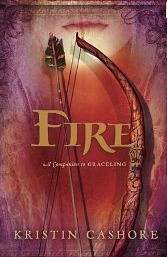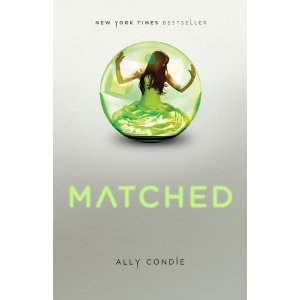 Matched, by Ally Condie
Matched, by Ally Condie
Rating: 5 out of 5
Cassia lives in a world where Society makes all of her decisions: what to eat, what to study, what career to undertake, and, most importantly, who to marry. And Cassia is fine with this. She believes in Society’s decisions, and so when Xander’s face appears at her Matching Ceremony, Cassia accepts that he is her best option for a future mate. Until Ky’s face appears on her chip. Although she is told that it was merely a glitch, that Xander is still her match, Cassia cannot stop thinking about Ky and wondering ‘what if?’. As she questions her Match, Cassia also starts to question Society as a whole and for the first time in her life, she wonders whether Society has a right to control her life.
For starters, the cover is amazing. And once you’ve read this book, you will see how appropriate it is too. If there is any book you are going to judge by it’s cover, let it be this one. Whoever designed this cover, I want them to design the cover for my future books. But moving on to the actual story.
At the beginning of the book, I was reminded of DuPrau’s City of Ember. Cassia’s world is ordered in a similar way to Ember. The citizens are told what to do and they do it. The only difference is that in Cassia’s world, the decisions are made by mathematical equations and super computers. Probabilities determine the best course of action.
As the book progressed, it diverged from City of Ember. Matched is intended for an older audience. The characters and their conflicts are more mature. The consequences more dyer.
Condie does an excellent job creating this new world. The tension and the need to conform to the rules set forth by society drip from the pages. I could clearly see the world; I felt anxiety for the characters, about the decisions they were making, and the ones they were not making.
In addition to the world creation, I also enjoyed the character development. Most characters, even secondary characters, grew as the book progressed. This helped to create a dynamic story. So often in books only 1 or 2 characters show real growth, but I could see the change in many characters as the hold of Society began to slip, as more people began to question the role of Society.
The interactions between the characters was also very well done. There were back stories and different levels of tension, and everything was revealed slowly, adding to the reality of this world and these characters.
All in all, I thought this was a wonderful book and I cannot wait for the sequel.


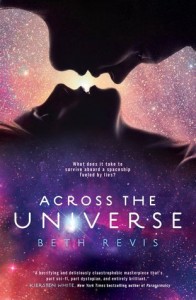


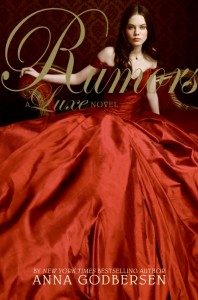
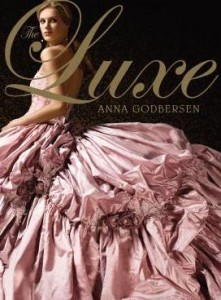
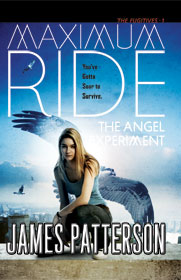
 Kelley Armstrong’s YA paranormal,
Kelley Armstrong’s YA paranormal,  I have a confession to make. I love sci-fi. This is something I do not often admit. An interest in sci-fi is not exactly the coolest thing. Despite the resurgence of Dr. Who and and the success of Avatar, sci-fi has maintained it’s stigma. So I’m sure you can imagine my excitement when I stumbled upon
I have a confession to make. I love sci-fi. This is something I do not often admit. An interest in sci-fi is not exactly the coolest thing. Despite the resurgence of Dr. Who and and the success of Avatar, sci-fi has maintained it’s stigma. So I’m sure you can imagine my excitement when I stumbled upon 